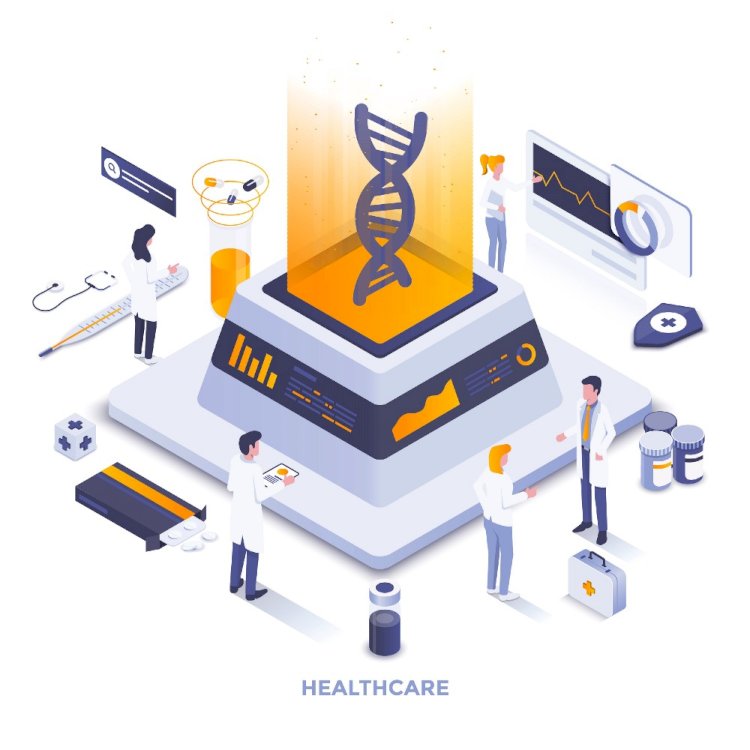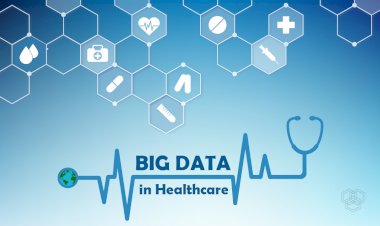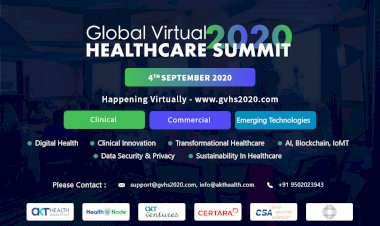The era of Blockchain and Big Data at healthcare
Blockchain is the technology behind crypto currencies such as Bitcoin. However, its avail broadening far behind the finance zone. Attainments are afoot to deploy Blockchain based data networks to zest, indoctrination, real estate, supply chain and plenty of other use cases.
Being in the end of first decade of 21st century, the healthcare industry finds itself faced with a multifaceted challenges: How to bring together all of this large, complex, messy data; how to securely make it available to providers, decision support tools and AI algorithms, researchers and other stakeholders, how to give consumers visibility and control over how their data is used; and how to achieve all of this without running afoul of data privacy and security regulations.
Blockchain is the technology behind crypto currencies such as Bitcoin. However, its avail broadening far behind the finance zone. Attainments are afoot to deploy Blockchain based data networks to zest, indoctrination, real estate, supply chain and plenty of other use cases. Particularly to healthcare industry, Blockchain includes a considerable attributes idiosyncrasy that are particularly appropriate for oversee healthcare data. In fastidious, it gives a level of transparency and reliance that can help healthcare systems gain better governance over how data is shared, with whom and under what circumstances. And the industry is taking notice: according to a 2018 report by PwC Health Research institute, 49% of global healthcare companies are developing blockchain solutions.
In the last 1 year, over hundreds of corporations are based with the desire of developing healthcare data sharing service by blockchain. Most of these use cases are solely of blockchain as an access log and permission governing system; the health data is stored and managed using traditional centralized databases and data warehouses. While this restricted use of Blockchain will improve transparency and patient control over data sharing, it doesn’t give the mandatory scalability to embrace global interoperability and compliance. And may be most conceivably most predominant, data on these systems is still shared by 1:1 data integrations and transfer protocols, modelling it nearly impossible to recall previously shared data comply with GDPR and other “right to forgotten” laws.
Bringing data onto the chain:
EMI foundation going to be the first corporation to develop and commercialize a blockchain protocol that approaches solution to these problems. The corporation recognized the inherent limitations of standard blockchain protocols and understood that, in order to achieve truly global interoperability, it would need to start from scratch. The outcome is identical, Blockchain based Bigdata platform that enables large, complex data to be stored, managed shared, analysed and monetised in a secure, HIPPA compliant blockchain. This platform is certainly modelled to enable global interoperability, fetching together data from any source onto a Bigdata Blockchain network that uses specialized smart contracts to govern everything from person to person data sharing to national regulatory enforcement. The company will commercialize the platform with substantial healthcare systems, health information exchanges, independent software and service vendors, governments and government agencies.
So far, EMI is the only Bigdata blockchain that is going to achieving commercial success at the enterprise level. Its success will be driving by sturdy partnership with healthcare systems and Bigdata corporations. One such company, Australia based one that the first online marketplace for medicine related and associate medical data. The corporate has agreed to adopt and use EMI’s Bigdata Blockchain platform to enable providers and researchers to securely access a warehouse of images and data those will facilitate them create higher clinical decisions and find out new medical breakthroughs. And as a part of company’s international network, they’re ready to appendage their marketplace with complementary datasets that add worth and deepen insights. Most predominantly, company’s chain putting people at the centre of that process — providing individuals with the power to manage if and the way their data is available on the marketplace and do participate within the substantiation of their data.
The ramifications of Bigdata Blockchain for the worldwide healthcare industry are gigantic. Rather than being consigned to the periphery, Big Data Blockchain enables individuals to work at the focal point of the esteem stream — controlling how their own information is utilized and monetized. Bigdata Blockchain empowers interoperability and information transparency to be accomplished on a worldwide scale. It enables administrative consistence to be automated and versatile at both a corporate and legislative dimension. Business intelligence departments, decision support tools, AI systems and other intelligence frameworks can access new datasets, shaping an extensive and longitudinal perspective on clinical, operational, ecological, social and other information. It wipes out the moderate and manual procedures that have turned out to be standard practice for supplier credentialing, prior authorisations and guarantee mediation. It empowers and upgrades real-time analytics and intelligence algorithms. It enables data to be made do with far more noteworthy explicitness, control and accountability. It opens the way to new research coordinated efforts and medicinal disclosures, more prominent individual empowerment and commitment, and global healthcare access and value.
Like all cutting-edge technologies, Blockchain is persistently advancing; both the technology and the market will keep on creating throughout the following five to ten years. As the technology develops, early adopters will be well-situated to lead the market and shape worldwide Blockchain models. Furthermore, organizations like major health cares are demonstrating that Blockchain is prepared for the healthcare industry today and will probably wind up foundation later on.
Core Points:
· Blockchain holds the prospective to change how the healthcare industry delivers care, and how people access care, on a worldwide scale
· Conventional Blockchain models offer gradual advantage, yet the eventual fate of Blockchain in healthcare is being delivered through Bigdata Blockchains.
· Early adopters are justifying the estimation of Blockchain and picking up market footings.

 Meghana
Meghana 





































